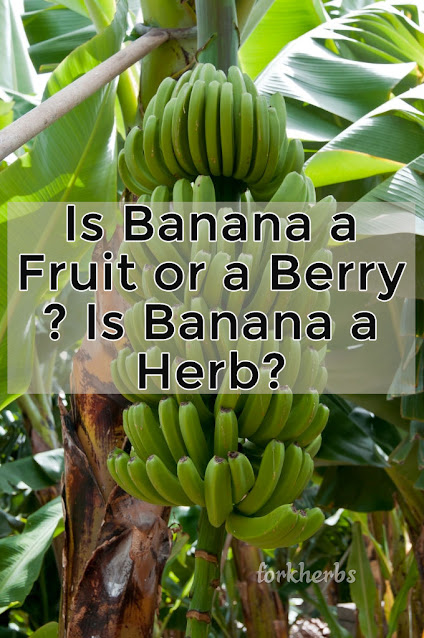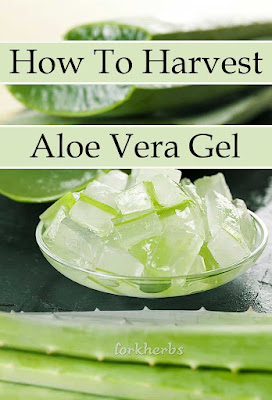Is Banana a Fruit or a Berry | Is Banana a Herb
Do you ever think, Is Banana a Herb? Or a tree? Unlock the mystery in this article and enjoy this tropical fruit without any questions in mind!
Bananas are one of the most popular fruits in the world! They are loaded with antioxidants and also are a rich source of magnesium, potassium, fiber, pectin, vitamin B6 and C. You can eat this nutritious fruit raw or add in smoothies or pancakes, the choice is yours! But, have you ever wondered–Is Banana a Herb, or is it a fruit? Let’s find out!
Although it is often termed as a tree, banana is a plant, more particularly a herbaceous perennial. This makes banana, a herb, as its stem does not contain actual woody tissues.
Banana plants do not have a supporting, wooden trunk. They produce multiple layers of leaves, wrapped around, forming a stem, which is 12-16 inches thick and 30-40 feet tall. This attribute makes them one of the largest ‘herbs’ on the planet.
Fun Fact: Banana plant dies after fruiting. The infant banana plants (suckers/pups) grow from the base of the parent plant and form a new tree, ready to bear the next round of bananas!
To fall under the category of fruit, it has to be the reproductive organ, containing seed structure. To be considered a berry, the ‘fruit’ has to be developed from a single ovary with a soft exocarp and fleshy mesocarp, with an endocarp containing one or more seeds. And banana fulfills all these qualities! This fruit develops from a single ovary, has a soft yellow outer skin with white flesh inside, full of tiny, black seeds!
It implies that banana consumption would not result in a significant rise in blood sugar levels in non-diabetic individuals. However, people with high blood sugar levels or type 2 diabetes should avoid taking a large quantity of ripened bananas.
Bananas are one of the most popular fruits in the world! They are loaded with antioxidants and also are a rich source of magnesium, potassium, fiber, pectin, vitamin B6 and C. You can eat this nutritious fruit raw or add in smoothies or pancakes, the choice is yours! But, have you ever wondered–Is Banana a Herb, or is it a fruit? Let’s find out!
Is Banana a Herb?
Although it is often termed as a tree, banana is a plant, more particularly a herbaceous perennial. This makes banana, a herb, as its stem does not contain actual woody tissues.
Banana plants do not have a supporting, wooden trunk. They produce multiple layers of leaves, wrapped around, forming a stem, which is 12-16 inches thick and 30-40 feet tall. This attribute makes them one of the largest ‘herbs’ on the planet.
Fun Fact: Banana plant dies after fruiting. The infant banana plants (suckers/pups) grow from the base of the parent plant and form a new tree, ready to bear the next round of bananas!
Is Banana a Fruit?
This might come as a surprise to most of you, but bananas are berries! Yes, you read that right! Berries!To fall under the category of fruit, it has to be the reproductive organ, containing seed structure. To be considered a berry, the ‘fruit’ has to be developed from a single ovary with a soft exocarp and fleshy mesocarp, with an endocarp containing one or more seeds. And banana fulfills all these qualities! This fruit develops from a single ovary, has a soft yellow outer skin with white flesh inside, full of tiny, black seeds!
Nutrition Value and Health Benefits of Banana
Bananas are packed with a fair amount of proteins, carbs, fiber, and minerals like potassium, vitamin B6 and C. They also contain essential neurotransmitter dopamine and catechin. Here are some of the health benefits they have on offer!Digestive health
Unripe green bananas are rich in dietary fiber, starch, and pectin. These prebiotic nutrients assist the growth of beneficial gut bacteria. The fibers get fermented and produce butyrate, which is a short chain of fatty acids that boosts gut health.Heart health
Bananas are affluent in potassium and antioxidants that encourage heart health and maintain blood pressure. As per Large analysis of several studies, daily intake of 1.4-1.6 gms of potassium lowers the risk of heart ailments by 26%. Bananas are also full of essential antioxidant flavonoids that help in reducing risks of heart disease.Weight Loss
Adding fibre-rich fruits and vegetables in your diet may help in weight loss. Daily intake of 1-2 bananas makes you feel full and simultaneously reduces the appetite.Blood Sugar
Banana contains resistant starch and pectin that help in controlling blood sugar. It also positions low to medium on the glycemic index (GI). The GI value of an unripe banana is approx 30, whereas a ripe banana comes at 60, and the average is 51.It implies that banana consumption would not result in a significant rise in blood sugar levels in non-diabetic individuals. However, people with high blood sugar levels or type 2 diabetes should avoid taking a large quantity of ripened bananas.




Comments
Post a Comment